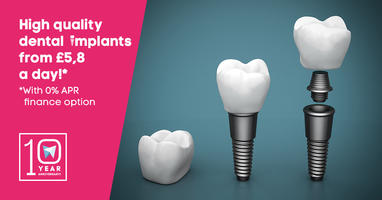Trismus is a pretty frightening but not at all uncommon condition in which the patient cannot fully open their mouth. There are 4 levels of severity, based on how far the patient can open their mouth. This scale of severity is based on how far the canines are from each other when the mouth is fully opened. This is how this scale works:
1st level: 4 cm-2.5 cm
2nd level: 2.5 cm-1 cm
3rd level: 1cm-0cm
4th: Total trismus, inability to open the mouth at all.
Diagnostic issues
Trismus is never a disease in and of itself, it is always a symptom of some other kind of problem. Getting to the bottom of what is causing the trismus is the only way of getting rid of it, but this can be a problem. More often than not, the causes of the trismus can be located in the mouth. This presents a diagnostic issue; the patient needs to open their mouth to let the doctor see what the problem is and cure the trismus, but the patient cannot open their mouth properly. This can make diagnosis extremely difficult, especially when the patient has total trismus that makes it nearly impossible to speak or communicate in any meaningful way.

Causes of trismus
The mechanisms of trismus are such that the TMJ, or temporomandibular-joint clamps shut or cannot fully extend, thus rendering the jaw shut even when resting. Many things can cause this situation to occur, and below we will provide a list of the most common ones.
Dental woes
An inflammation in the soft tissues, or an infection in one of the teeth can cause the TMJ to shut completely. An infection can also lead to enlarged soft tissues, which in turn can stop the TMj form extending completely.
Diseases of the TMJ
Diseases that affect the TMJ directly do often cause trismus. Rheumatoid arthritis of the jaw, inflammation of the TMJ or damage caused to it by an improper bite are all culprits in the development of trismus.
Other infections
Infected tonsils, abscesses in anywhere in the breathing apparatus, such as the sinuses, the mouth or throat, and infections of the salivary glands can all be the causes of trismus. This usually happens only during quite severe infections, as the infection needs to get pretty severe in order to affect the TMJ.
Trauma
The TMJ cannot function properly if damaged. Certain kinds of breakage and damage will cause the TMJ to lock, especially if the TMJ is not aligned properly due to breakage or damage. Certain conditions, like epilepsy and anxiety issues can also cause damage to the TMJ that can cause it to lock temporarily.
Dental treatment
Certain dental treatments can cause trismus. If the jaw is opened too wide, it may shut back wrong and cause the TMJ to lock up. Certain oral surgeries can also cause the dental nerve to become damaged, which will also cause trismus.
Image: 1.

